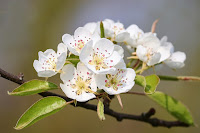Hate has no home here?
The State of South Carolina has officially banned the trafficking of certain foreign types within its borders. Some were formerly imported by none other than U.S. government agencies.
The federal government of the United States has a long history of introducing or promoting alien species in our country. Others were conveyed by private sponsors. Many are now despised, having brought infectious diseases, displaced natives, contributed to environmental and economic hardship, or become nuisances, at best.
In 1876, kudzu was brought to the United States Centennial celebration in Philadelphia by representatives from Japan. Was it a nefarious plan? We might never know, but the federal government began to promote it through the USDA and the Civilian Conservation Corps. Kudzu now covers vast areas of landscape and is known as “the invasive vine that ate the South.”
A list of hated species could be extensive.
The Callery pear is one of latest to be identified and will be banned by officials in South Carolina. At least one other state – Ohio – has done so, and others will likely follow.Callery pear is native to southeast Asia and Japan. An “improved” variety – Bradford – was introduced by the USDA in 1963. It was attractive, grew quickly, believed to be fruitless, and widely promoted for residential and commercial landscape planting. Since then, it has proven to be structurally weak, covers itself in stinky white flowers, and – surprise, surprise, surprise – bears loads of fruit when pollinated by other pears. Of course, the seeds are sown widely by wildlife, and Callery pear has overtaken the American landscape. “It has all the characteristics of a noxious weed,” said David Coyle, Clemson University’s assistant professor of Forest Health and Invasive Species.
Consequently, Callery pear has been added to the State Plant Pest List. Once place on the list, trafficking of such plants are banned immediately. But since several varieties of Callery pear are currently sold in the state, officials decided to phase out the trees over the course of a few years to mitigate adverse effects upon industry. As of October 1, 2024, however, the ban will go into full effect.
Clemson Extension has instituted a Bradford Pear Bounty program which seeks to educate consumers, convince them to plant better trees, and get rid of the pear trees in their landscapes. But since the public will often choose not to comply with government edicts, the State of South Carolina will ban their sale.
At the same time as Callery pear was included, three species of Elaeagnus were added to the plant pest list. For an extensive list of plants banned in South Carolina, check out the State Plant Pest List.
If you do not live in South Carolina, you should refer to the plant pest list in your own state. I’m sure yours has one. You’ll probably find a few species that you should avoid, as well.
Return to GoGardenNow.com.






